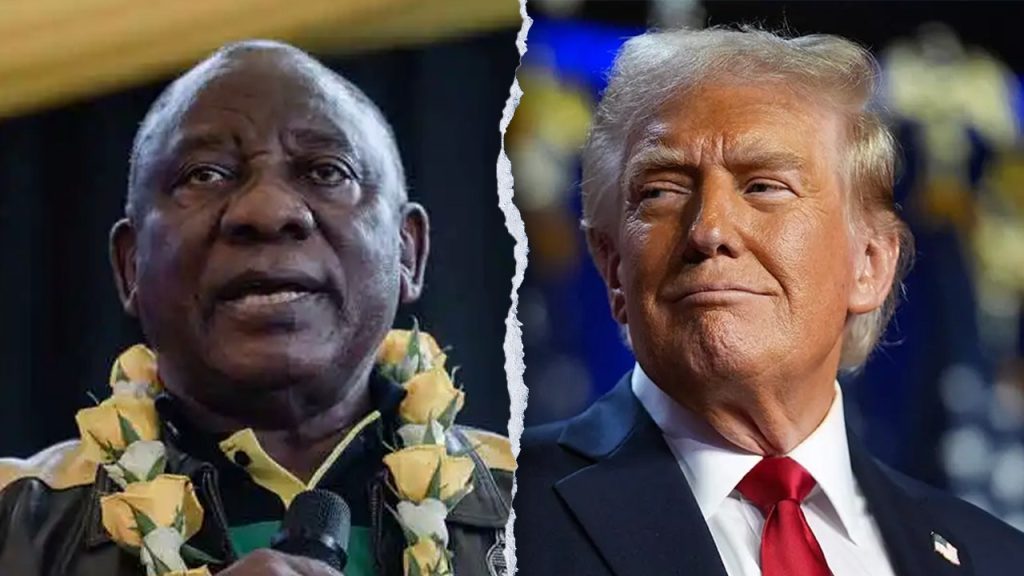Donald Trump’s pronouncement of impending aid cuts to South Africa, based on allegations of land confiscation and human rights violations, has ignited a heated exchange between the two nations and drawn commentary from various observers. Trump’s assertion, disseminated via his Truth Social platform and reiterated in public statements, centers on the claim that South Africa is engaging in a “massive human rights violation” through land seizures, prompting his decision to halt future funding pending a full investigation. This drastic measure, according to Trump, is necessitated by what he perceives as a critical situation overlooked by the “Radical Left Media”.
South Africa, however, vehemently denies these allegations. President Cyril Ramaphosa issued a direct rebuttal, emphasizing that no land confiscations have occurred. He clarified that the recently enacted land reform legislation allows for expropriation with “just and equitable compensation” for public purposes, a process distinct from outright seizure. Ramaphosa expressed a willingness to engage with the Trump administration to clarify misconceptions and foster a shared understanding of South Africa’s land reform policy. This underscores the stark divergence in the two leaders’ interpretations of the situation, setting the stage for a potential diplomatic standoff.
Adding another layer of complexity to the situation is the involvement of Elon Musk, a South African-born entrepreneur. Trump’s accusations appear to be influenced by Musk, who has faced challenges in expanding his Starlink internet service within South Africa due to local ownership regulations favoring Black economic empowerment. Musk’s public questioning of South Africa’s “openly racist ownership laws” directed at Ramaphosa on social media further complicates the narrative and suggests a possible connection between Musk’s business interests and Trump’s pronouncements.
Analyst Frans Cronje offers a different perspective on Trump’s accusations, suggesting that the former president’s concerns might be rooted in the issue of violence against farmers in South Africa. Cronje points out that farmers are statistically more likely to be victims of violent attacks compared to the general population, potentially framing this as the “bad situation” and human rights violation referred to by Trump. This introduces a nuanced interpretation of Trump’s statements, moving beyond the land expropriation issue to encompass broader concerns about safety and security in South Africa. Cronje also raises the possibility of ulterior motives influencing Trump’s stance, linking it to potential impacts on American investors in South Africa and the broader context of US-South Africa relations.
The timing of Trump’s accusations coincides with growing tensions between the United States and South Africa on the international stage. Cronje highlights South Africa’s alignment with countries like Russia, China, and Iran, which has raised concerns within the US government. He also points to South Africa’s support for the International Criminal Court and its use of international legal mechanisms against Israel, further straining the relationship with the US. This broader geopolitical context provides a backdrop against which to interpret Trump’s actions, suggesting that his statements on land reform may be part of a larger strategy related to US foreign policy objectives.
Finally, the potential impact of the threatened aid cuts remains a point of contention. While Trump frames the aid suspension as a significant measure, Ramaphosa downplays its importance, emphasizing that US aid outside of the PEPFAR program for HIV/AIDS relief is minimal. This differing emphasis on the significance of US aid reveals contrasting perspectives on the potential leverage Trump holds. Analyst Justice Malala predicts a broader disruption of the US-South Africa relationship under the Trump administration, suggesting that the land issue is just one facet of a more complex and potentially volatile dynamic. This sets the stage for a period of uncertainty and potential friction between the two countries.










